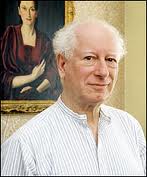 Some thirty years ago, writer Howard Engel gave the world Benny Cooperman, a new made-in-Canada literary detective whom the Globe and Mail and others would acknowledge as “the country’s first truly Canadian detective hero.”
Some thirty years ago, writer Howard Engel gave the world Benny Cooperman, a new made-in-Canada literary detective whom the Globe and Mail and others would acknowledge as “the country’s first truly Canadian detective hero.”
According to Cynthia Good, former senior editor at Penguin, Engel’s pioneering Canadian-Jewish detective opened the floodgates for scores of other Canadian crime writers to follow. “Engel’s creation of a Jewish detective has enriched the mystery genre and promoted a positive, alternative depiction of the private eye,” she said at the 2010 Canadian Jewish Book Awards in May, where Engel was honoured with a lifetime achievement award.
As Engel explained to me in a recent interview in the off-Bloor Street café that he visits frequently, he consciously made Benny Cooperman different than other literary detectives.
“I had read a lot of mystery novels over the years, and I decided I would try to make a character who wasn’t like any of the others,” he said. “Where one American detective was fast with his fists, Benny Cooperman was going to avoid confrontation. Where the others were American and Christian, Benny Cooperman was going to be Canadian and Jewish. And where most of the American and British detectives came from large cities like New York, London, San Francisco or Los Angeles, Benny Cooperman was going to come from a small town.”
(Cooperman lives in Grantham, a fictional town modeled after St. Catharines, where Engel grew up.)
One evening in 1980, Engel fed a sheet of paper into his typewriter. “I didn’t know when I began to type that it was going to be the beginning of chapter one of a novel,” he recalled. When he read back what he had written to his wife and a friend, they urged him to continue with it.
Those early pages became the start of The Suicide Murders, the first of about a dozen Benny Cooperman mysteries that would follow: titles include The Ransom Game, A City Called July, Dead and Buried, and There Was An Old Woman. Penguin recently reprinted all of them in attractive new covers along with East of Suez, the next in the series. Meanwhile, the prolific Engel has already finished another two or three. “The manuscripts are piling up. I don’t think they’ve had a look at them yet, but they will be publishing them in the next little while.”
A former topnotch writer-producer for the CBC, Engel has received many literary awards, including the Arthur Ellis award for crime fiction, and has been named a member of the Order of Canada. A couple of his books have been made into films.
Benny Cooperman has changed over the decades — for instance, he’s now married — but, as befits a fictitious creation, he ages more slowly than the rest of us. He still works in Grantham, still likes egg-salad sandwiches, still has an edge of ironic humour.
Years ago, he started out on divorce cases for which he had to “stand all night under leaky eavestroughs looking into a window and getting wet in the rain” in order to prove adultery. These day he gets a better class of clients and a better quality of cases; even the once-disdainful Grantham police have come to respect his sleuthing abilities. His parents, however, still make the occasional dig because he didn’t go into a regular profession like his brother the surgeon.
In at least one key aspect, Cooperman has become more like his creator over the years. Just as Engel awoke one morning a decade ago with some perplexing mental difficulties, Cooperman has acquired some mental cloudiness, as evidenced in The Memory Book, in which he sleuths his way out of a jam despite a head injury that impairs his reading ability. Cooperman’s affliction continues in East of Suez but doesn’t stop him from solving the case.
One morning in 2000 Engel suddenly discovered that printed English seemed as unfathomable to him as printed Chinese. He was diagnosed with alexia sine agraphia, a form of visual impairment involving an inability to recognize written language. Engel’s affliction continues but his writing ability remains as good as ever. His condition is so unusual that neurologist-writer Oliver Sacks wrote a New Yorker piece about him called “The Man Who Forgot How to Read.”
With the aid of friends who read to him, Engel still produces manuscripts at an admirable pace, including several non-Benny Cooperman detective mysteries of late. To the relief of thousands of his fans, he has no plans to stop crafting Benny Cooperman stories. “I’m not tempted, as Conan Doyle was with Sherlock Holmes, to push Benny off a cliff,” he said. “I don’t find Benny crowds me. I think that poor Conan Doyle was crowded by Holmes.”
Happy birthday, Benny Cooperman, and many happy returns. ♦
© 2010





